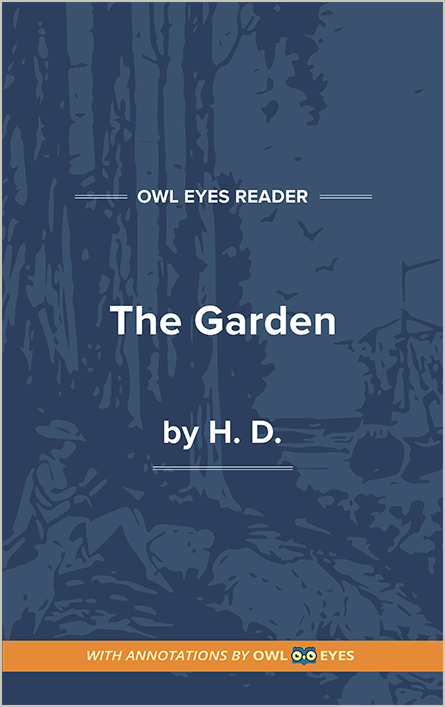Analysis Pages
Vocabulary in The Garden
Vocabulary Examples in The Garden:
The Garden
🔒"plough..." See in text (The Garden)
"blunts..." See in text (The Garden)
"rend..." See in text (The Garden)
"scrape..." See in text (The Garden)
"hail..." See in text (The Garden)

